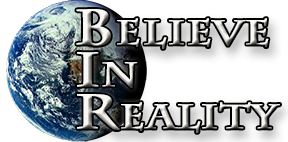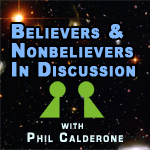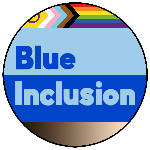Ignorant themselves of the forces of nature and wanting to have company in their ignorance, they do not want people to look into anything; they want us to believe like peasants and not ask the reason behind things …. But we say the reason behind everything should be sought out!
-(William of Conches (c. 1090-1154 AD), Philosophia mundi)
The horizon of our collective knowledge has expanded hugely over the millennia though with setbacks that have caused knowledge to be lost, some not to be rediscovered for centuries, some permanently. We have also endured forces that stifled progress until these obstacles were overcome or discarded.
The losses are many and multifactorial. Starting from the peak of scholarship by the ancient Greeks, the Roman Empire simply did not translate all texts to the dominant Latin (100-300 ACE). Constantine proclaimed Christianity as the only legitimate Roman religion (380 ACE) establishing a theocracy that suppressed thinking that might contradict biblical teachings. Similarly illiteracy was encouraged, even among many priests who could not read their own bible, in favor of looking to church leaders for proper biblical life instruction. To be fair this was as much a wielding of religion by leaders to consolidate and maintain power, a tool used by English kings in later centuries. Non-Christian temples were destroyed across the empire including the library in Alexandria (391 ACE), the world’s largest depository of international scholarship. As the empire declined a resource shift to military assets redefined priorities (to 476 ACE), this lasting for the hundreds of years after the Empire’s fall. The church was the surviving entity and thus began the Dark Ages (476-1000 ACE).
Arab culture took a different route, with intellectual study flowering in the wake of the unity generated by Islam’s early Caliphates. They built on the collective works of the Egyptians, Hebrews, Persians, Greeks and Romans—in fact much of the Greek works being carried forward in history is due to this work, translated texts into Arabic. While the Europeans were muddled in darkness, the Arabic empire became the world’s preeminent center of scholarship (700-1300 ACE) until being broken up by assaults from Ottoman Turks and crusading Europeans. The renewal of Arab regions today after several stages of transition and influence is again attempting to reconstitute its caliphate, this time against the competition of modern knowledge.
Though the west has experienced a steady growth of knowledge from philosophy and science (1600’s) to physics and biology (to today), a resurgence of Christian religious conservatism (1980+) especially in the United States is causing factual back-stepping in a large portion of the population. This refocus to biblical teachings is having detrimental influences within government as adherents have worked themselves into power.
Both Christianity and Islam today struggle against modern knowledge which largely debunks diety-based explanations of nature. It is interesting to note that, while early Christianity led to the suppression of non-religious thought, early Islam prompted intellectual study and coexisted with the results. To some degree philosophical ideas (as proto-science) were absorbed as explanations of how God worked. This was perhaps an easier outcome when so little was known about how nature worked; God of the gaps was more accepted when the gaps were so large.
Why does religion hold such domain, belief over fact? There are psychological and evolutionary factors but the common thread is a failure to hold reality as the highest worth, in exchange for maintaining the sacred. Best knowledge illuminates fact and reality, not opinion and belief. It is also subject to correction when newer, more proven information is obtained. Systems of religious doctrine are defined and then held to, resisting intake of new information. They strive to maintain the old, teaching that they had it right at origin.
The path to embracing reality involves a willingness to move in whatever direction evidence carries us. Early evidence points us; repeat and reinforcing evidence moves us. Beliefs based on speculation or hearsay should be studiously, if not reverently, retired to the archives of history reflecting not what is known but what was once thought to be known.
Science does this to itself in a process known as paradigm shift. When trusted concepts—even those trusted by the majority—are overturned, the new replaces the old. Examples are our shifts from Earth-centered to Sun-centered to non-centered cosmology, each reducing the apparent significance of man but placing us closer to understanding reality. Progress too can be made as refinements built on past knowledge, for example general relativity as a refinement of the Law of Gravitation.
Evolution points to belief originating as a survival tool, thus it is a natural tendency that will be hard to overcome. However it is important that we make this belief-to-reality transition. The instincts that kept us alive 50,000 years ago are now having the unintended side effect of causing us to make decisions on false information.
There are four possible roads ahead. One is where we fall back to historical and religious delineations for society, advocating suppression of new information and oppression of dissenters (sound familiar? 16th Century Galileo). A second is where we stagnate in eternal conflict, struggling between those of conflicting beliefs as well as those who don’t believe. A third is an abrupt end to our species as a reckless result of this conflict—nuclear war, etc. And a fourth is a movement beyond the bottleneck, the elevation of truth-seeking.
These are very broad strokes but outlines of our choices are now visible. Where do you stand? What road do you choose for your children? What path do you choose for the future of our species?



